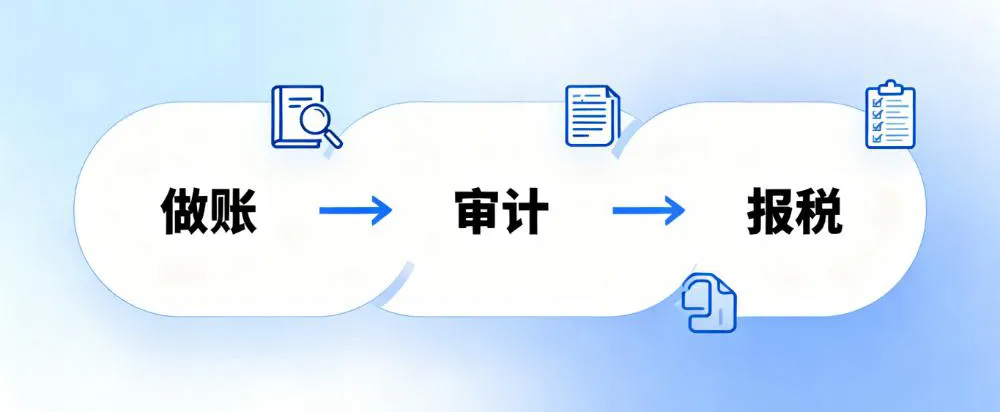2025 Hong Kong Offshore Exemption New Regulations Compliance Guide: Tax-saving Logic, Application Requirements and Full Process Practical Operations
1、 Core Interpretation of Hong Kong Company Notarization
Hong Kong company notarization refers to the act of a qualified notary institution or notary public in Hong Kong verifying and certifying relevant documents of a Hong Kong company, and issuing notarized documents. Its core purpose is to enable Hong Kong companies' documents to be recognized and used outside of Hong Kong, especially in mainland China and other countries.Due to the different legal systems implemented in Hong Kong and the mainland, Hong Kong belongs to the common law system, while the mainland belongs to the civil law system, and there are significant differences in the notarization systems between the two places. Hong Kong company notarization is not simply a matter of stamping confirmation, but rather a rigorous examination of the authenticity and legality of documents by professional notaries, including verifying the authenticity of company registration information, director signatures, and the completeness of document content, ultimately forming a legally effective notarized document, clearing legal barriers for cross-border use of documents.
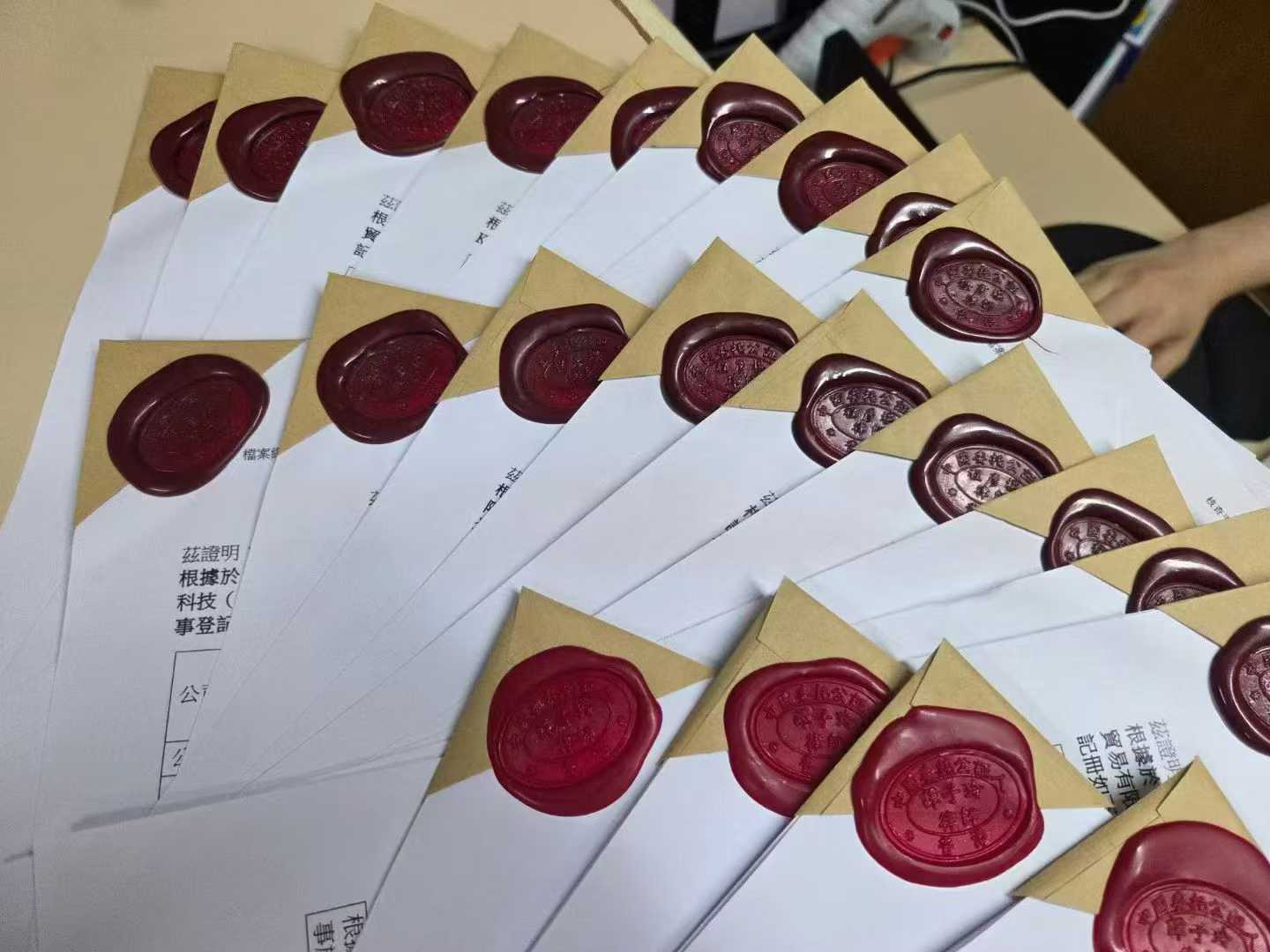
2、 The purpose of Hong Kong company notarization
The main purposes of Hong Kong company notarization include:- Prove the authenticity of documents: The notary verifies the authenticity of company documents to ensure that they have not been tampered with or forged.
- Legal validity recognition: Notarized documents have legal validity outside of Hong Kong and are recognized by local governments, courts, banks, and other institutions.
- Convenient cross-border business: Notarized documents can be used for overseas investment, cross-border transactions, legal litigation, and other scenarios, simplifying processes and improving efficiency.
- Risk prevention: Verify the authenticity of documents through notarization to reduce transaction risks and legal disputes caused by document issues.
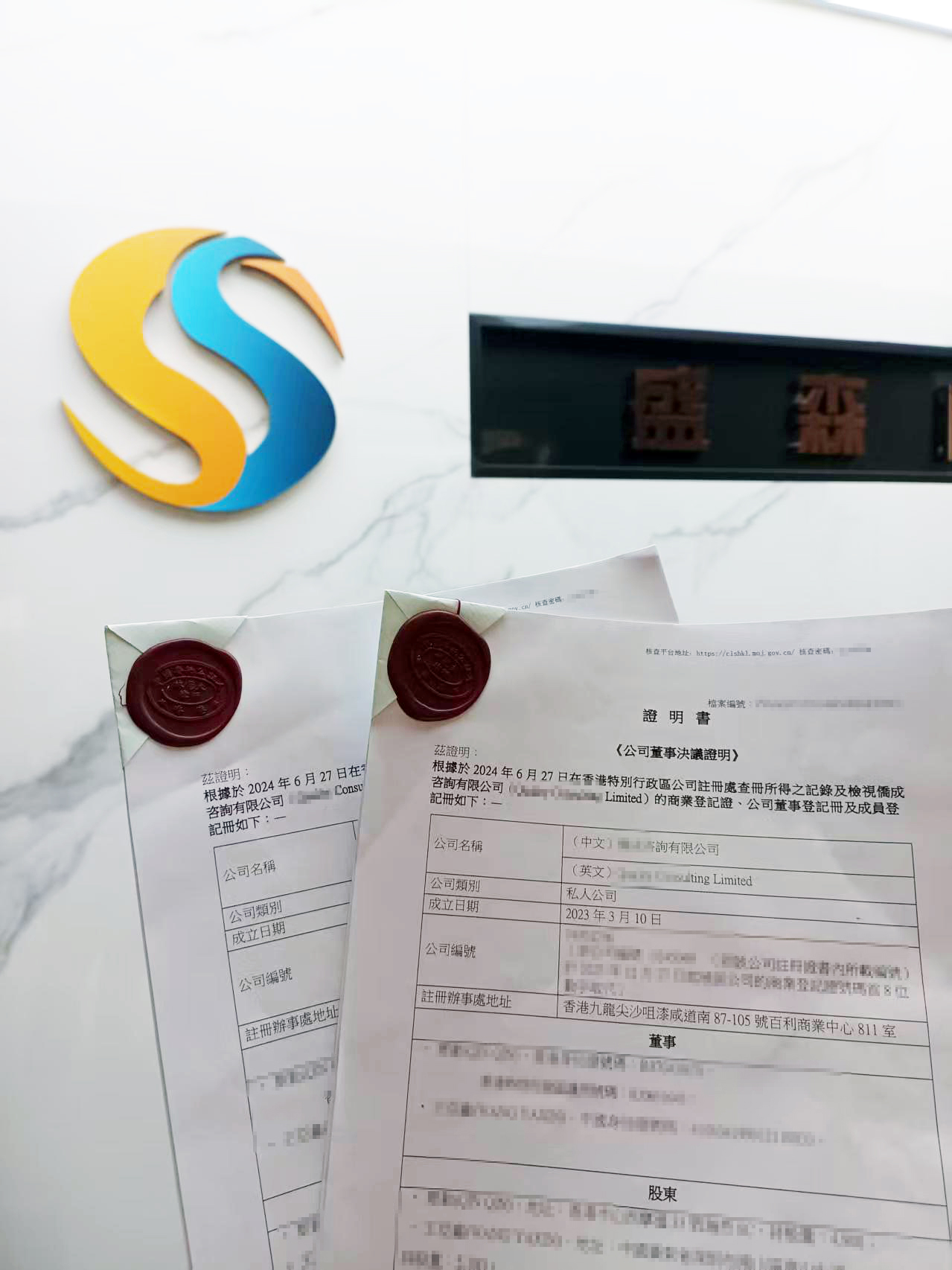
3、 Under what circumstances is it necessary to have a Hong Kong company notarized?
When Hong Kong companies conduct cross-border business or handle overseas affairs, the following situations usually require notarization:1. Mainland investment and operation
- When Hong Kong companies establish subsidiaries or branches in mainland China, or participate in mergers and acquisitions, joint ventures, and other projects, institutions such as the Market Supervision Administration and the Ministry of Commerce will require notarized Hong Kong company registration certificates, business registration certificates, director resolutions, and other documents to confirm the company's legal entity qualifications.
2. Litigation or arbitration
- If a Hong Kong company is involved in legal disputes in mainland China or other countries and submits evidence to a court or arbitration institution, the relevant company documents (such as contracts, power of attorney, etc.) must be notarized, otherwise they may not be accepted.
3. Asset disposal
- Including the purchase of real estate and land overseas, or the transfer of equity and intellectual property rights, both parties to the transaction and relevant regulatory authorities will require notarized company documents to ensure the legality of the transaction subject and the effectiveness of the transaction behavior.
- When Hong Kong companies open accounts, apply for loans, and settle funds in banks in mainland China or other countries, banks usually require notarized basic company documents and director authorization documents to prevent financial risks.
5. Trademark or patent registration
- When a Hong Kong company applies for a trademark or patent overseas, the relevant intellectual property management department will require the provision of notarized company entity qualification documents to confirm the applicant's legal identity.
6. Company Change and Cancellation
- When a company is changed or deregistered in a jurisdiction outside of Hong Kong, the local government may require notarized company documents to be provided.
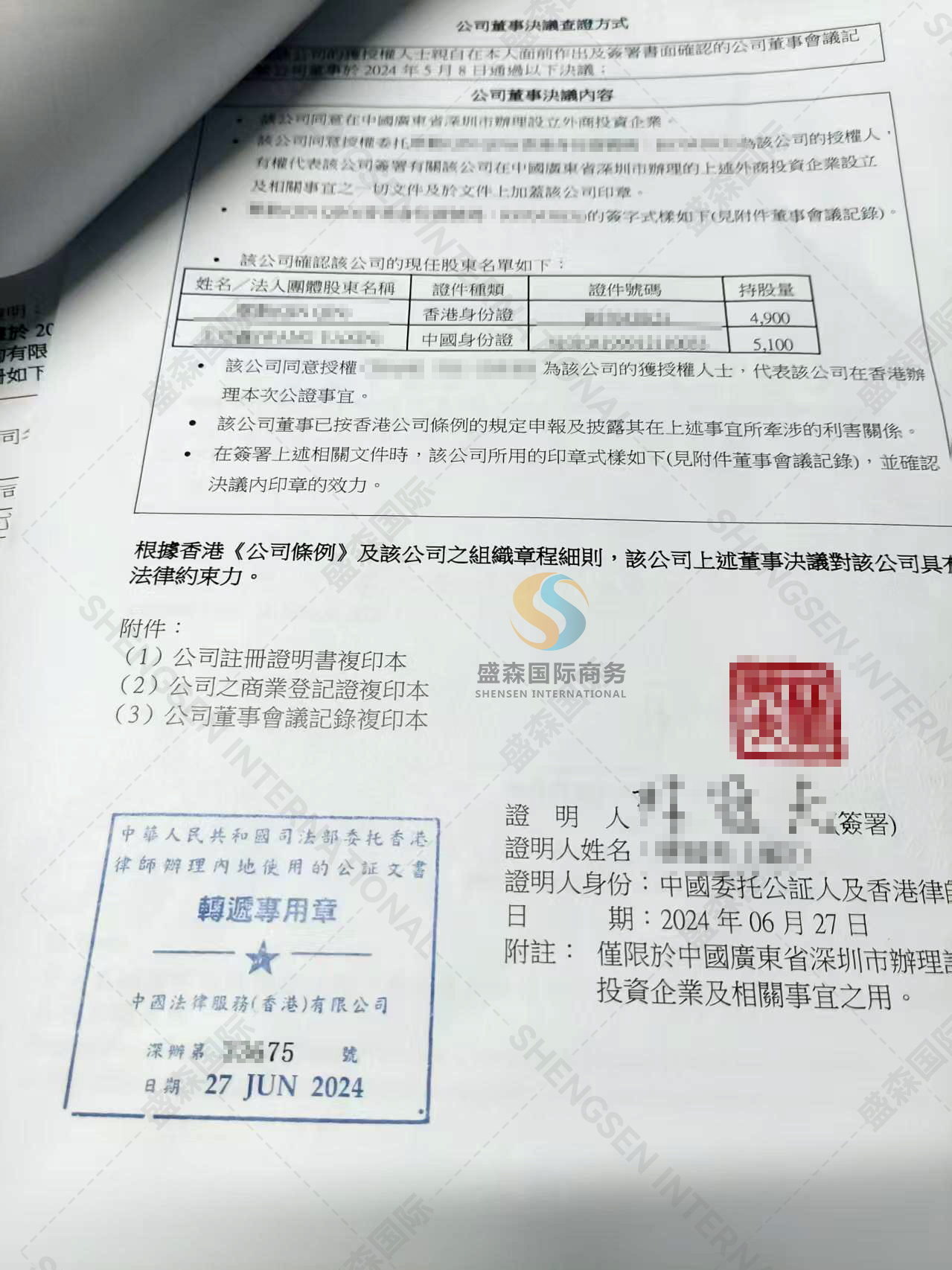
4、 Hong Kong Company Notarization and Certification Process
The notarization and certification process of Hong Kong companies usually includes two main steps: notarization and seal transmission. The specific steps are as follows:- Document preparation: Firstly, organize the documents that need to be notarized, such as company registration certificate, business registration certificate, annual declaration form, director resolution, power of attorney, etc., and ensure the completeness and validity of the documents.
- Entrust a notary public to notarize: Submit the prepared documents to a practicing notary public in Hong Kong. The notary public will conduct a strict review of the documents, verifying the authenticity of company information, director signatures, and other content. After the review is approved, the notary will affix a notary seal on the document and issue a notary certificate to prove the authenticity of the document.
- Chinese entrusted notary public seal transmission (for use in mainland China): If the notarized document is used in mainland China, it also needs to be sealed and transmitted by the Chinese entrusted notary public association. The Chinese appointed notary is a Hong Kong notary authorized by the Chinese Ministry of Justice, and the notarized documents issued by them have legal effect in mainland China. Seal forwarding refers to the process where a notary public commissioned by China re examines notarized documents, confirms their accuracy, and affixes a forwarding seal to prove the authenticity and validity of the notarized documents.
- Hague authentication (for use in Hague member states): If a notarized document is used in a Hague Convention member state, after being notarized by a Hong Kong notary public, it needs to be submitted to the Hong Kong High Court for Hague authentication (i.e. Apostille authentication). The Hong Kong High Court will stamp the Hague authentication seal on notarized documents to ensure their recognition in all Hague member states.
- Non Hague member state authentication (excluding domestic countries): For countries that are neither Hague member states nor have special notarization arrangements with Hong Kong, notarized documents may need to be authenticated by the consulate or embassy of that country in Hong Kong. The specific requirements need to be implemented according to the regulations of the target country, usually requiring notarization by a Hong Kong notary public before submission to the relevant embassy or consulate for review and stamping with a certification seal.
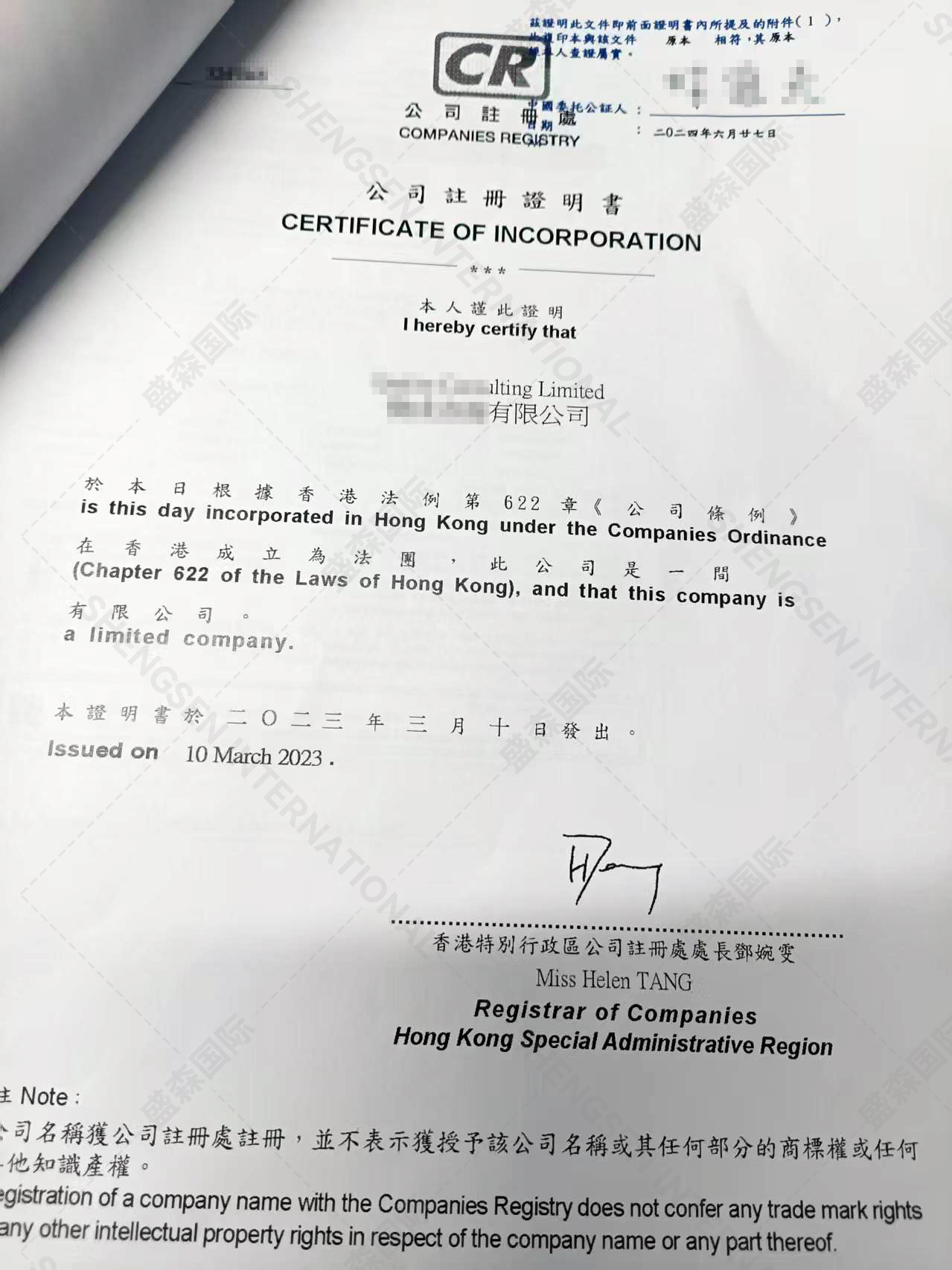
5、 Information required for notarization of Hong Kong companies
When applying for notarization of a Hong Kong company, the following documents are usually required, subject to the specific notarization matters and the requirements of the notary public:- Basic documents of the company: including the Hong Kong Company Registration Certificate (CI), Business Registration Certificate (BR), Annual Declaration Form (NAR1), etc. These documents are the basic basis for proving the legal registration and existence of the company.
- Corporate decision-making documents, such as board resolutions, shareholder resolutions, etc., are used to demonstrate the legality of the company's decision-making procedures and results on specific matters.
- Authorization document: If entrusting someone else to handle notarization or related affairs, a power of attorney must be provided, specifying the entrusted matters, authority, and deadline, and signed and confirmed by the company's directors.
- Director and shareholder information: including identification documents of directors and shareholders (such as passports, copies of ID cards), equity structure diagrams, etc., used to verify the authenticity of the company's management and equity structure.
- Other related documents: Depending on the specific purpose of notarization, contracts, articles of association, financial statements, trademark certificates, patent certificates, and other documents may also be required.
- It should be noted that all submitted documents usually require original or certified copies, and some documents may need to be translated into the official language of the target country or region (such as documents used in mainland China may need to be translated into Chinese).
6、 Notes on Notarization of Hong Kong Companies
1. Choose a reputable notary institution and notary public:- It is recommended to choose a practicing notary public or a legitimate notary institution recognized by the Hong Kong government for notarization, especially for notarization in mainland China. It is necessary to choose a Chinese commissioned notary public to ensure the validity of the notarized documents.
2. Clarify the purpose and target area of notarization:
- Different countries and regions have different requirements for notarization. Before processing, it is necessary to clarify the location of the notarized document and understand the specific regulations of the local area (such as whether authentication, translation, etc. are required), in order to avoid invalidation of notarization due to non-compliance with requirements.
3. Ensure the authenticity and completeness of the file:
- The submitted documents must be truthful, legal, and complete, and must not have any alterations, forgeries, or other situations. If there are defects in the document, it may lead to notarization failure and even affect the reputation of the enterprise.
4. Pay attention to the notarization deadline:
- Some notarized documents have certain time limits, such as the business registration certificate needing to be updated annually, and the annual declaration form will also change with changes in company information. When using notarized documents, it is necessary to ensure that they are within their validity period to avoid being unusable due to document expiration.
5. Advance planning of processing time:
- The notarization process for Hong Kong companies requires a certain amount of time, especially when it involves seal endorsement or consulate authentication, which may take weeks or even months. Enterprises should plan ahead according to actual needs, reserve sufficient processing time, and avoid affecting business progress due to time constraints.
7、 Common questions about Hong Kong company notarization?
Q: How long does it take for a Hong Kong company to be notarized?A: The notarization time for Hong Kong, which is generally used in mainland China, is about 3-5 working days. The notarization time for overseas regions is 7-15 working days, and the Hague certification time for Hong Kong is about 5-12 working days. The specific notarization time should take into account the actual government working hours and mailing time.
Q: Can Hong Kong company documents be notarized directly at a notary office in mainland China?
A: No way! It must be handled by a Hong Kong notary lawyer and then forwarded to the mainland.
Q: How much is the notarization fee for Hong Kong companies?
A: The notarization fee varies depending on the number and complexity of the documents, and is generally calculated according to the number of witnesses. For more information, please click on the QR code below to inquire.
Q: Can directors go to Hong Kong to sign remotely?
A: Some notaries accept video witness signatures, but they need to communicate with the law firm in advance and provide the original director identity certificate and signature sample as required.
Q: Do notarized documents need to be translated?
A: If used in mainland China, English documents must be translated by a recognized translation agency in Hong Kong or mainland China, with the translated document marked as "consistent with the original" and stamped with a translation seal; Overseas use shall comply with local requirements, such as some European and American countries requiring document translation and local notarization.
Q: Do we need to re notarize company documents after they have been changed?
A: If there are changes in company documents such as shareholder information, registered capital, director information, etc., they need to be notarized again to ensure the timeliness and legality of the documents.
Hong Kong company notarization is an indispensable part of cross-border business for enterprises. Understanding its concept, applicable scenarios, processes, required documents, and precautions can help enterprises efficiently and compliantly complete notarization procedures, providing strong guarantees for the smooth development of cross-border business activities.
In practical operation, if encountering complex situations, you can scan the code to add a professional notary consultant below for consultation and obtain the latest notary information.





